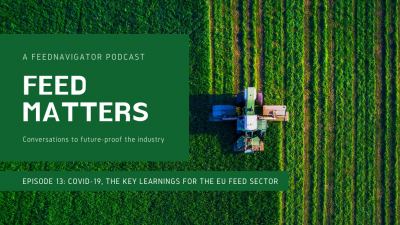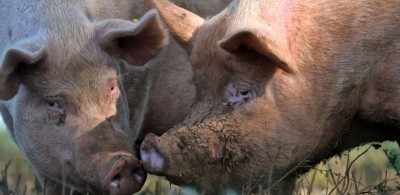Report: Coronavirus will change German livestock industry

Currently, Europe’s biggest pork slaughterhouse is closed due to numerous workers testing positive for COVID-19, the US service noted in a review published on July 5.
The slaughterhouse in question, located in North Rhine-Westphalia, commands a market share of nearly one-third of Germany’s pork production. It also happens to be Europe’s biggest slaughter facility, with an annual slaughter of over seven million pigs at this location.
The immediate impact of the closure of that abattoir on the German market was not as severe due to the general oversupply of pork in Germany and the ability to increase slaughter in other operations. There was more of an effect for farmers in Belgium and Netherlands who send around 60,000 pigs for slaughter to Germany every week. Irish farmers were also hit by the closure as up to 50% of sows slaughtered in Ireland are sent to this factory for processing into products such as frankfurters and salami.
In the long run, the infections also exposed tough labor conditions for slaughterhouse workers, so that the German government is set to enforce higher labor standards, a move that may reduce competitiveness of the German livestock industry, according to the USDA publication.
Heightened focus on animal welfare
The COVID-19 pandemic has also renewed discussions about animal welfare in the German market.
Animal welfare has long been high on the agenda of German agricultural ministers and there have been several initiatives to improve animal welfare, without much effect.
“The problem is, that the implementation of national standards prior to the development of a higher EU standard puts German farmers at a cost disadvantage, compared to their Spanish or Polish counterparts, for instance. And the industry’s ability to mitigate costs while still meeting new standards poses a challenge,” said the US federal agency’s report.
Germany has long been a vocal leader on this issue on European level but there has never a majority in favor of stricter animal welfare standards.
“Now that COVID-19 has put the slaughter industry in the spotlight and Germany holds the EU presidency from July 1 to December 31, Germany again wants to move forward on this issue and introduce a single, consumer facing animal welfare logo, along the lines of that already in place for organic food.
“For the German government, such an animal welfare label would enable EU consumers to make better informed purchasing decisions.
“While the success of this initiative is uncertain on EU level, it is quite likely that Germany will implement stricter animal welfare regulations at home. Currently, there is just too much pressure on the German livestock industry and especially the pork market.”








